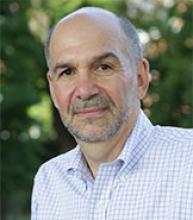
Research Topics
The focus of the Helminth Immunology Section is the study of host resistance and immune regulation in parasitic helminth infections of global importance. The ultimate goal of this work is prevention of infection and disease. Our work focuses on both the host response to helminth infection and the molecular basis for parasitism in helminths and the prototypical responses they induce.
Much of our work involves the analysis of host-parasite interaction using in vitro systems and studies of cells from infected patients ex vivo. Current activities include 1) functional mapping of the earliest host-parasite interaction that influences the polarized immune responses that are the hallmarks of these infections; 2) genomic and proteomic definition of each of the filarial parasites to identify parasite-encoded therapeutic, diagnostic, and vaccine-related targets; 3) studies of pathogenesis underlying disease manifestations (e.g., elephantiasis) in filarial infections; 4) studies of immunologic bystander effects of chronic helminth infection on non-parasitic infections (HIV, tuberculosis, malaria), atopy, and autoimmune diseases; 5) the regulation of igE and eosinophilia in the context of human helminth infections.
The Clinical Parasitology Section is an interdisciplinary group of clinically trained LPD staff members who oversee the clinical research portfolio ad provide clinical care, consultations, and training in tropical medicine and parasitology.
The overriding goals of this program are
- To gain insight into the clinical syndromes associated with parasitic infections
- To understand and help define the pathogenesis underlying clinical disease
- To identify better ways of treating individual infections and to prevent secondary consequences of treatment
- To develop better diagnostic tools for the species-specific diagnosis of active parasitic infection
Although the section has protocols to see patients with any parasitic infection, the majority of patients have neurocysticercosis, filarial infections (lymphatic filariasis, onchocerciasis, loiasis, mansonellosis), strongyloidiasis, hookwork infections, ascaraisis, giardiasis, echinococcosis, and leishmaniasis. We occasionally see patients with gnathostomiasis, African trypanosomiasis, Chagas disease, and malaria, among others.
Biography
Dr. Nutman received his A.B. from Brown University and his M.D. from the University of Cincinnati College of Medicine. He did an internal medicine residency at New York University (Bellevue) and postdoctoral training in the Laboratory of Parasitic Diseases (LPD). He is board certified in internal medicine and allergy and immunology. He also holds a diploma/certificate in tropical medicine and travelers’ health. He has been at NIH in the Laboratory of Parasitic Diseases since 1982, where he is currently deputy chief, as well as chief of both the Helminth Immunology Section and the Clinical Parasitology Section. In addition, he is the director of the NIAID International Center for Excellence in Research (ICER) located in Chennai, India, as well as director of the filariasis unit at the NIAID ICER in Mali. He is on numerous advisory committees and editorial boards and holds patents related to parasite diagnosis and vaccine development. He is the author or coauthor of over 500 papers and book chapters and has received multiple awards for his work in tropical medicine and immunology.
Selected Publications
- Gazzinelli-Guimaraes PH, Dulek B, Swanson P, Lack J, Roederer M, Nutman TB. Single-cell molecular signature of pathogenic T helper subsets in type 2-associated disorders in humans. JCI Insight. 2024;9(7).
- Gazzinelli-Guimaraes PH, Golec DP, Karmele EP, Sciurba J, Bara-Garcia P, Hill T, Kang B, Bennuru S, Schwartzberg PL, Nutman TB. Eosinophil trafficking in allergen-mediated pulmonary inflammation relies on IL-13-driven CCL-11 and CCL-24 production by tissue fibroblasts and myeloid cells. J Allergy Clin Immunol Glob. 2023;2(4):100131.
- Coulibaly YI, Diabate AF, Sangare M, Thera SO, Dolo H, Doumbia SS, Coulibaly SY, Diarra A, Diarra L, Tanapo D, Coulibaly ME, Soumaoro L, Diallo AA, Zeguime A, Sanogo Y, Berthe A, Konipo FDN, Mackenzie C, Stephens M, Shott JP, Norman J, Klarmann-Schulz U, Hoerauf A, Majewski A, Horton J, Sullivan S, Ottesen EA, Nutman TB. Effect of Adding a Six-Week Course of Doxycycline to Intensive Hygiene-Based Care for Improving Lymphedema in a Rural Setting of Mali: A Double-Blind, Randomized Controlled 24-Month Trial. Am J Trop Med Hyg. 2024.
- Hochberg NS, Dinculescu VV, Nutman TB. Case 17-2023: A 58-Year-Old Woman with Fatigue, Abdominal Bloating, and Eosinophilia. N Engl J Med. 2023;388(23):2180-2189.
- Bennuru S, Kodua F, Drame PM, Dahlstrom E, Nutman TB. A Novel, Highly Sensitive Nucleic Acid Amplification Test Assay for the Diagnosis of Loiasis and its Use for Detection of Circulating Cell-Free DNA. J Infect Dis. 2023;228(7):936-943.
Related Scientific Focus Areas

Microbiology and Infectious Diseases
View additional Principal Investigators in Microbiology and Infectious Diseases



Molecular Biology and Biochemistry
View additional Principal Investigators in Molecular Biology and Biochemistry

This page was last updated on Tuesday, August 20, 2024